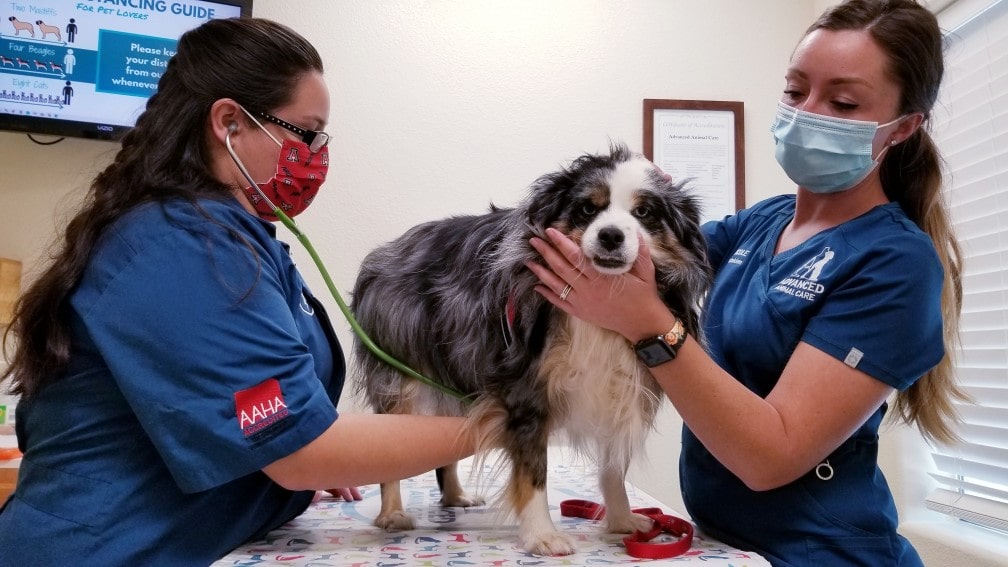The term congenital heart disease means heart disease. It is a disease that one carries in its body since birth. You were born with it, so to speak.
Regarding dogs, the number of individuals with such diseases is not more than 1 to 1.5% of the dog population. However, you must know that such defects can lead to heart damage that can’t be reversed.
It can culminate in heart failure as well. The way to prevent such a catastrophe is to diagnose and treat it successfully. You should know that your pet insurance would not cover these issues.
As such, it could cost you thousands of dollars to treat your baby, provided they have this condition. It is a significant reason dog parents need to know about such defects and the symptoms the dog has.
It does not matter in this case if they are new or experienced. What are the common congenital heart defects, and what are their symptoms? Which dog breeds are at the highest risk in these cases?
What effect can such a condition have on their life expectancy? Can such conditions be treated successfully? There are so many conditions that one needs to ponder.
The types of congenital heart disease in dogs
There are three kinds of congenital heart diseases that dogs suffer from – 1. pulmonic stenosis, 2. sub-aortic stenosis, and 3. patent ductus arteriosus. Pulmonic stenosis is a prevalent congenital heart defect you would find in dogs. It happens to purebred male dogs.
The life expectancy of a dog suffering from this depends on how severe its condition is – in other words, the severity would determine its chance of surviving.
Patent ductus arteriosus happens when the ductus arteriosus does not close following birth. It is a blood vessel that connects the aorta with the pulmonary artery. A study done in 2011 says that this happens mostly to purebred female dogs.
This particular condition is curable, even if you do so later in their lives. Sub-aortic stenosis is the third common name. Purebred male dogs tend to suffer the most from this disease.
If the dogs have a mild version of the condition, they have a normal lifespan and do not need any treatment. Most dogs with severe – and even mild – sub-aortic stenosis do not live beyond three years.
What are the symptoms of heart disease in dogs?
The clinical signs and symptoms of the condition can range anywhere between severe and mild. They include the following:
- a continuous or loud murmuring of heart
- fainting
- short growth
- weak or irregular pulse
- weakness
- polycythemia or a high number of red blood cells
- depression
- ascites or building up of fluid in the belly
- coughing
- bluish paws in hind legs
- dyspnea or difficulty in breathing
- collapse
- pulmonary edema or fluid in the lungs
- seizures
- intolerance towards exercise
- congestive heart failure
The Journal of Small Animal Practices says that in 75% of the cases, dogs with congenital heart diseases do not show any symptoms. Reading this, you may think if your pup’s heart is murmuring, it must have congenital heart disease. That is not the case. Having an innocent murmur or two of the heart is pretty common for pups when it is growing rapidly.
The heart murmurs normally and starts manifesting when the dogs are six to eight weeks old. They disappear by the time your furball is four or five months old.
However, if it persists even after that period – and if you can hear it the best at right – it is better to talk to the vet immediately.

How is this condition diagnosed?
There are five main ways to diagnose the condition. It starts with routine exams, angiograms, chest x-rays, echo-cardiograms, and electro-cardiograms. Most congenital heart diseases get detected during routine diagnosis. This is when heart murmurs are detected.
They would mostly cost you around 45 to 55 dollars. When an angiogram is done, a catheter, a long and narrow tube, is inserted into a vein or artery of your baby’s arm, groin, or neck and threaded through a blood vessel till it reaches the heart.
It shows your dog’s valves, heart chambers, and coronary arteries. The chest x-rays can show if the fluid has built up in your dog’s lung tissues. Also known as cardiac ultrasounds, echocardiograms can show if your dog’s heart valves are blocked or narrow.
They can show the patterns in which blood flows in this part of their bodies. Electrocardiograms referred to as EKG, show the speed at which your dog’s heart is beating and if the rhythm is normal or not.
How to treat congenital heart diseases in dogs?
The following are the only options that you have in this context:
- balloon valvuloplasty
- catheter-based occlusion
- diuretics and ACE (angiotensin-converting enzyme inhibitors)
- beta-blockers
- restriction in exercises
- thoracotomy or open-heart surgery
Balloon valvuloplasty is a surgical procedure that has the minimum levels of invasion. Catheter-based occlusion is also a minimally invasive surgical process.
ACE inhibitors -benazepril, imidapril, enalapril, and ramipril, and diuretics like spironolactone and furosemide help pull out the fluid accumulated in the lungs of your dog.
Beta-blockers like atenolol, carvedilol, and metoprolol can slow down the pulse rate of your dog and give his heart more time so it can be full of blood.
If your baby is suffering from severe or mild sub-aortic stenosis, you should limit the amount of exercise they get. Open heart surgeries treat patent ductus arteriosus and are invasive surgical processes.
Conclusion
The way to prevent the condition is by breeding responsibly. If your dog belongs to a breed at risk of this disease, you should get a full cardiac workup done before you breed them.

 DogExpress
DogExpress




















 in Chandigarh, India.
in Chandigarh, India. 
